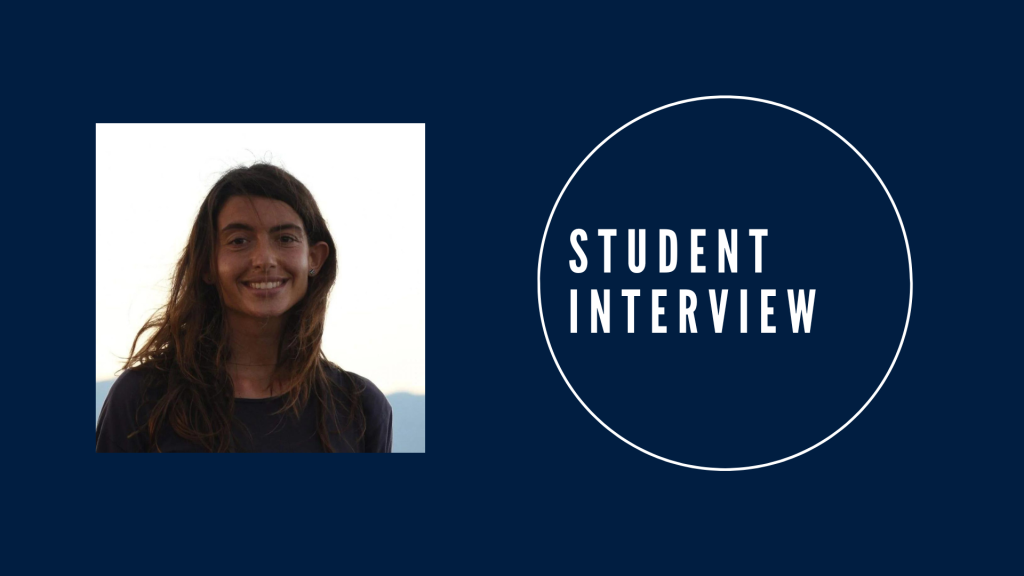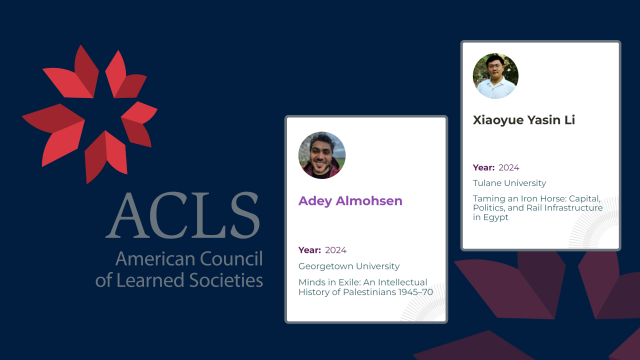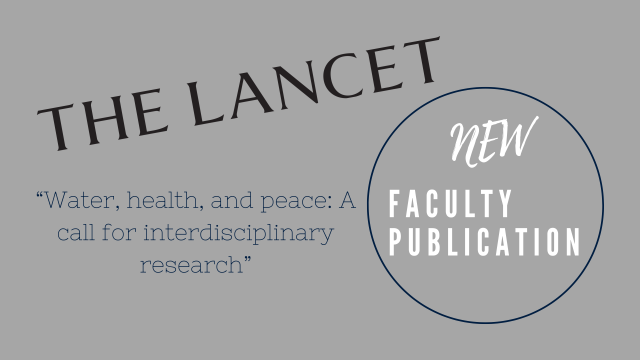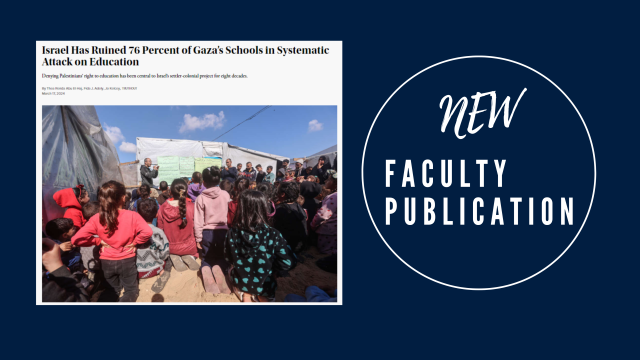
In this interview, Coco Tait speaks with current student Lucie Weismueller. Lucie graduated from the University of Erfurt with a B.A. in International Relations and a minor in Social Sciences. Over the last years Lucie has lived and worked in France, Indonesia, Lebanon, the US, and Tunisia and has extensively traveled the Middle East.
1) Please tell me about yourself. What are your professional interests and what has the evolution of your career looked like?
I’m originally from Frankfurt, Germany, and I spent most of my childhood in Germany. Growing up with a German mother and a French father, I have always been drawn to different cultures and languages. After high school, I had no idea what I wanted to do with my life, so I started traveling for a year, and I ended up living in Indonesia, where I found a job as a scuba dive instructor. I spent three years living in Indonesia, and while living and working there, I realized that I really like working with people and that I also like working in an international environment with people from different cultures and backgrounds. That led me to apply to study international relations in Germany at the University of Erfurt my bachelors. Before starting my bachelors, I had the chance to travel through the Middle East. That got me really interested in the region. Then, during my bachelors, I had a really great professor who was offering Arabic classes, so I took Arabic during my undergrad, and I also had the opportunity to intern in Lebanon.
I also became more interested in extremism and in the refugee context, especially after 2015 and the increase of refugees coming from Syria and the Middle East to Germany. I started working with refugees in Germany to help navigate German bureaucracy, and that made me even more curious about the Middle East and the Arabic language in general. After graduating, I applied for a job in Tunisia, and I lived and worked there for a year and continued studying Arabic. Then I decided to apply to Georgetown, and here I am.
2) Can you discuss some of the issues that you are most passionate about now? How are you able to balance them as you pursue your degree? Outside of my studies, I love sports, so all kinds of sports including swimming, soccer, running, skiing, and tennis, as well as photography. I’ve been lucky that at Georgetown we have the freedom to have four elective courses throughout our degree. I was able to take photography classes as part of my MAAS curriculum. Georgetown University also offers a wide range of sport courses free of charge that I was also able to take throughout my two years at Georgetown.
Whenever I travel to the Middle East or any other countries, I plan to take photos and do small photo projects there as well. In the past while living in the Middle East, I have found that sports are a great way to connect with local communities. Living in Tunisia, most of the friends I made were actually through playing sports because it’s just a very easy and organic way to meet new people. Playing soccer is just one of the easiest ways to meet people. There are always people who want to play and you need pretty much no equipment other than a ball.
3) You have had a variety of different experiences across the globe, including France, Lebanon, and Indonesia among many others. What have been some of the most meaningful lessons you have learned in both your professional and personal travels? How has language and language learning opened up these opportunities?
I speak German, French, and English fluently. I’m at an intermediate Arabic level, and I do speak some Spanish. I think language is key to understanding people and cultures and it’s also a sign of respect to just show that you’re not coming to a place, just wanting someone to speak English to you, but you’re actually putting in the effort to try to learn the language. I grew up speaking German and French and I learned English in high school and I have been studying Arabic for a few years. I just feel like once you speak the same language as the people, you can just communicate very differently and you can immerse yourself also into the popular culture, newspapers, and TV series. It’s just a very different communication with the people, I think.
4) What are your aspirations post-graduation? Is there anything you want to say to your future self?
I’m going to graduate in May and will look for a job in the humanitarian sector, the development sector, or will try to get into the German Foreign Service. I would be open to staying in the US to work for a humanitarian organization, but I would also love going back to the Middle East, working in a refugee camp in a humanitarian organization or in development. It is still all very open.
And for my future self? Stay curious, stay open, stay interested, and don’t worry too much because opportunities usually come when you least expect them.
Maybe to all international people who are thinking about applying to MAAS and are not sure about the finances or if they have a chance, I would just recommend anyone to just try it and apply, and they might be surprised how many doors would open. International students should also apply early. The U.S. higher education application process is much different than the European one and requires more time.
Coco Tait is the CCAS Events and Program Manager.


